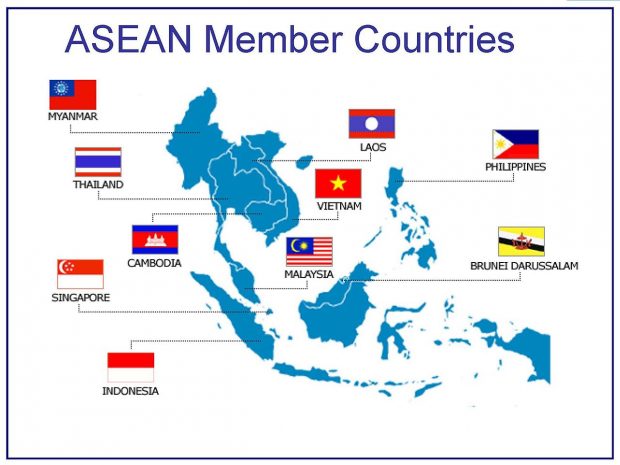
Asean wary of being used as pawn in Washington-Beijing jostling

[Singapore] Despite the personal rapport between Donald Trump and Xi Jing-ping, Sino-US rivalry has been escalating over trade, technology, and security issues. As Trump puts it: “I am President of United States and Xi is President of China”. National interest trumps friendship. And the businessman-turned-politician has made it clear that in the contest for supremacy, America must prevail. Using tariffs as his signature weapon, Trump has extracted concessions from Xi, including purchases of more corn and wheat from the US leader’s support base. After Beijing held back on further concessions in their trade talks, Trump upped the ante by blacklisting China’s tech giant Huawei from doing business with US firms on national security grounds.
Under his watch, US aircraft carriers are also making more frequent freedom of navigation passage through the South China Sea, over which Beijing has exerted its sphere of influence and its sovereignty over resource-rich islands such as Spratly, Paracels and Scarborough Shoal, as well as the surrounding fishing grounds. Washington is capitalizing on the counterclaims by Vietnam, Philippines, Malaysia, Brunei, and Indonesia by interposing itself between the smaller states and big brother China
Though China has emerged as the world’s second-largest economy after the US, it is viewed by Washington as an upstart power seeking to flaunt its muscles. No doubt China does not hesitate to show itself as a rising power but affirms it is a peaceful country exercising its legitimate status in its regional, if not home, domain. The open jostling between the superpower, the US and the rising power China, has put small states like Singapore in an invidious position, given that they have close economic and security links with faraway Washington and strong trade ties with neighboring China. Nor do these South-east Asian nations overlook the love-hate relations ala Trump-Xi between the two giants who could do a deal and leave them out in the cold.
Singapore Prime Minister Lee Hsien Loong cited an African proverb to characterize the fate of states like Singapore in the face-off between China and the US. “When elephants fight, the grass is trampled; when they make love, the grass suffers”. Already, Singapore has seen a drop in trade figures and cut its full-year growth to 1.5-2.5 % from 1.5-3.5 % as the US-China trade wrangle takes its toll on other trading partners. In the face of the US-China fracas, “small states like Singapore can do little to influence the big powers”.
This was underscored by Prime Minister Lee in his keynote speech to an international audience of defense and industry top brass at the opening of the 18th Shangri-la Dialogue held in Singapore on May 31. But he noted that the small states can work together to deepen economic co-operation, thereby strengthening their integrity and influence.
On their own, small states would be courted, if not coerced, by the big powers to take sides in the on-going tussle by US and China for supremacy. As a regional grouping, members of the 10-nation Association of South-east Asian Nations (Asean) could hold their own ground and not become pawns in the big-power games. For instance, Asean could engage credibly with China in setting up a code of conduct for resolving disputes over the South China Sea islands through diplomacy and negotiations. However, Asean unity will be tested as the US seeks to turn members Vietnam and the Philippines into allies against China with militaryand economic incentives. To be sure, Singapore is a major security partner of America, giving access to US warships in its naval base as well as overflights by US military aircraft. This caused China to have misgivings about the Republic for seemingly taking the side of US, especially over the South China Sea disputes. Singapore has assured Beijing that its hosting of the US navy is meant for its self-defense.
Its ambassador-at-large, Professor Tommy Koh, told the Chinese at a forum that the bottom line is this: “Singapore will never allow its relationship with any major power to harm China.”. China’s territorial claims over the South China Sea islands are challenged by Philippines, Vietnam, Malaysia, and Brunei. Washington has entered the fray by proclaiming the South China Sea as an international waterway. It is challenging China’s claims by sending warships on so-called freedom of navigation passage near the Chinese-claimed Spratly islands, sparking concerns of accidental clashes. Singapore’s foreign policy is to have good relations with major powers but not become a pawn in their grand power game.
Instead, the city-state will play a neutral observer role, mediating between the two sides. This may include offering rich insights that convey other perspectives to their relationship. Singapore leaders see the crux of the tension between US and China as a mutual lack of strategic trust between the two giants. It is vital that both sides meet each other half-way. To Beijing, Prime Minister Lee said: “China should resolve disputes over the South China Sea peacefully, in accordance with international law, including the United Nations Law of the Seas.” To the US and other countries, he said they had to adjust to the new reality of China’s growing might and footprint in the world. “China will have its own legitimate interests and ambitions.’’
On its part, the US should “forge a new understanding that will integrate China’s aspirations within the current definitions and norms.” Mr. Lee’s statements to the American and Chinese participants at the Shangri-La Dialogue highlighted Singapore’seven-handed approach as an aself-appointed honest broker.


